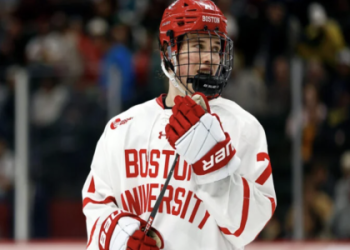In 1991, the Winston-Salem State University basketball team undeniably made its mark in the NCAA tournament with a roster brimming with talent and determination. This squad did not just compete; they captured the hearts of fans and showcased exceptional skills on the court. As they advanced through the tournament, key players emerged, defining their legacy and adding pride to the WSSU program.
The 1991 roster featured several standout athletes, most notably David “DJ” Johnson and Greg “G-Man” Johnson. Both players exhibited a unique blend of athleticism and basketball IQ, making them invaluable assets to the team. DJ, the point guard, led the team with his quick decision-making and exceptional ball-handling skills. Understanding the game’s flow, he often controlled the tempo and set up plays that maximized his teammates’ strengths. He was not just a facilitator; DJ could also score when needed, striking fear into opponents with his shooting range.
Moreover, G-Man played a critical role as a versatile forward. His athleticism allowed him to dominate both offensively and defensively. G-Man’s ability to drive to the basket and finish was complemented by his skills in perimeter shooting. He shared, “Every time I stepped on the court, I knew I had to put my heart into every play. That’s what fueled us.” This mindset resonated throughout the team, inspiring others to elevate their performance.
The head coach, Clarence “Bighouse” Gaines, played a pivotal role in shaping this remarkable squad. With decades of experience and numerous accolades, Gaines was known for his strategic acumen and ability to develop young talent. His emphasis on teamwork and discipline manifested in their cohesive play. Coach Gaines reflected on the season, stating, “I saw a spark in this group from the start. They refused to back down, and that made all the difference.” His leadership was more than tactical; it fostered a culture of resilience and confidence.
As the season progressed, the team faced various challenges, including tight games and fierce opponents. Each matchup tested their resolve. For instance, during the pivotal tournament game against a higher-seeded team, Winston-Salem displayed remarkable grit. The pressure was immense, yet they rallied around each other. Understanding the stake, players like DJ and G-Man took the lead, making crucial plays in the final minutes. This ability to perform under pressure became a defining characteristic of the squad.
Analyzing Their Journey
Looking back, the 1991 Winston-Salem State team faced more than just on-court competition. They also battled against preconceived notions regarding HBCU teams in the NCAA. As they made strides in the tournament, they proved that with talent and grit, any team could challenge the odds. The unique camaraderie within the squad was palpable, and fans could feel the unmistakable energy radiating from the players.
The atmosphere during games at their home arena, the Lawrence Joel Veterans Memorial Coliseum, was electric. Home court advantage played a significant role in their success during that year. The passionate fanbase packed the stands, cheering for every basket and defensive stop, fostering an environment that pushed the players to their limits. G-Man vividly remembered those moments, saying, “Hearing the crowd roar after a big play gives you a kind of energy you can’t describe.” Such sentiments echoed throughout the team, reinforcing their belief in each other.
The trials and triumphs of this team did not go unnoticed. They left a lasting legacy in the history of Winston-Salem State basketball. The combination of talented athletes, a visionary coach, and unwavering support from fans created a story worth telling. The season became a defining chapter, highlighting the significance of unity and passion in sports.
As we reflect on the journey of the 1991 Winston-Salem State basketball team, one must ask: what qualities do you think are essential for any team aspiring for greatness, especially in the face of adversity? Join the conversation and share your thoughts. The rich history of college basketball continues to inspire and ignite discussions long after the final buzzer sounds.















